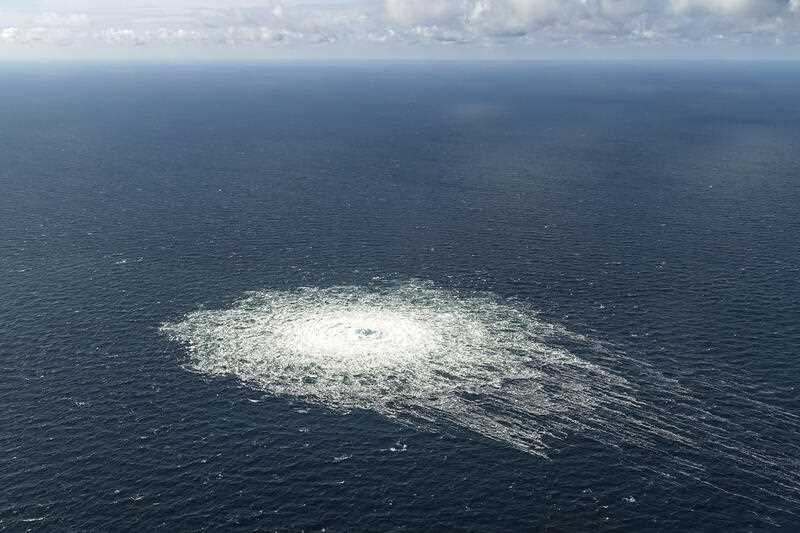The United Nations Security Council will convene at the request of Russia to discuss damage to two gas pipelines as the European Union promised a “robust” response to any intentional disruption of its energy infrastructure.
The EU has said it suspects sabotage was behind gas leaks discovered this week on subsea Russian pipelines to Europe.
As gas spewed out under the Baltic Sea for a third day after first being detected, it remained far from clear who might be responsible for any sabotage of the Nord Stream pipelines that Russia and European partners spent billions of dollars building.
“Any deliberate disruption of European energy infrastructure is utterly unacceptable and will be met with a robust and united response,” the EU foreign policy chief Josep Borrell said.
Echoing the views of Germany, Denmark and Sweden, he said the EU believed sabotage was probably the cause although the EU has not named a potential perpetrator or suggested a motive.
The United Nations Security Council will convene on Friday to discuss the incident, the French UN mission, which holds the presidency of the 15-member council for September, said.
Russia’s embassy in Denmark said any sabotage on Nord Stream’s pipelines was an attack on both Russia’s and Europe’s energy security.
The Kremlin has rejected Ukrainian accusations of alleged Russian responsibility for the pipeline leaks as “stupid and absurd”.
Denmark’s defence minister said after a meeting with NATO General Secretary Jens Stoltenberg there was reason to be concerned about the security situation in the region.
“Russia has a significant military presence in the Baltic Sea region and we expect them to continue their sabre-rattling,” Morten Bodskov said in a statement.
Norway’s prime minister said on Wednesday that its military will be deployed near oil and gas installations while Denmark is raising its level of preparedness.
“The military will be more visible at Norwegian oil and gas installations,” Norway’s Jonas Gahr Stoere told a news briefing.
In the Baltic Sea, gas was still bubbling from the Nord Stream 1 pipeline, the Swedish Coast Guard said in an email.
The Danish Energy Agency said more than half the gas in the damaged Nord Stream pipelines had left the pipes and the remaining volume was expected to be gone by Sunday.
Jens Schumann, managing director of gas pipeline grid company Gasunie Deutschland, said he was “relatively optimistic” that the damage could be repaired.
“There are good teams in place to handle pipeline accidents, there are emergency pipe inventories and experts for onshore and offshore,” Schuman said.
But German security agencies fear that Nord Stream 1 will become unusable if large volumes of salt water flow into the pipes and cause corrosion, German newspaper Tagesspiegel reported, citing government sources.
The Danish armed forces said the largest gas leak caused a surface disturbance of more than one kilometre in diameter, as agencies issued warnings to shipping.
Sweden’s Prosecution Authority said it will review material from a police investigation and decide on further action after Swedish Prime Minister Magdalena Andersson said on Tuesday that two blasts had been detected.
Although this did not represent an attack on Sweden, officials were in close contact with partners such as the NATO military alliance and neighbours such as Denmark and Germany, Andersson said.
Seismologists in Denmark and Sweden said they had registered two powerful blasts on Monday in the vicinity of the leaks and the explosions were in the water, not under the seabed.
with DPA
Get the latest news, sport, entertainment, lifestyle, competitions and more delivered straight to your inbox with the Canberra Daily Daily Newsletter. Sign up here.



